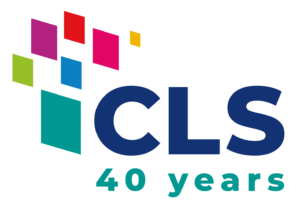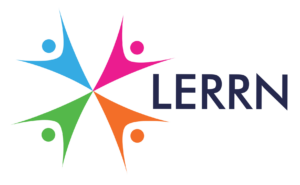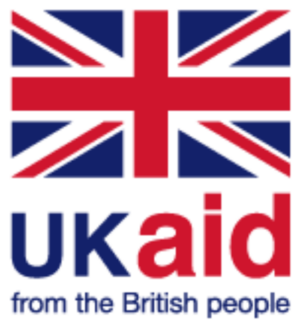| 29 Apr 2024 | 10:00 - 17:00 | GS4, Faculty of Education, Donald McIntyre Building , 184 Hills Road, Cambridge, CB2 8PQ | |
- Description
- Programme
- Biographies
Description
Convenors
- Maha Shuayb (Faculty of Education, University of Cambridge, Centre for Lebanese Studies)
- Cathrine Brun (Faculty of Education, University of Cambridge, Centre for Lebanese Studies)
Speakers
- Stephanie Appleton (British Academy, Deputy Head of International Programmes)
- Sahla Aroussi (University of Leeds)
- Samuel Asare (Senior Research Manager at Education Sub Saharan Africa (ESSA))
- Saleem Badat (University of the Free State)
- Hilary Cremin Faculty of Education, University of Cambridge)
- Roula El-Rifai (Senior Program Specialist, Canada’s International Development Research Center (IDRC))
- Nadyia Ismaeva, (LERRN, University of Carlton)
- Francine Menashy, (University of Toronto)
- James Milner (LERRN, University of Carlton)
- Rabie Nasser (Cofounder and Director of the Syrian Centre for Policy Research (SCPR), and researcher at the University of Vienna)
- Mezna Qato (University of Cambridge)
- Cyrine Saab (Centre for Lebanese Studies and University of Cambridge)
- Ricardo Sabates (Faculty of Education, University of Cambridge)
- Yusuf Sayed (Faculty of Education, University of Cambridge)
- Daniel Wunderlich (Assistant Director, Research Office, University of Cambridge)
Summary
The Centre for Lebanese Studies and the Faculty of Education at the University of Cambridge with support from the Centre for Research in the Arts, Social Sciences and Humanities (CRASSH) at University of Cambridge, the International Development Research Centre (IDRC) and LERRN, at Carlton University, is organising a one day workshop on Research Funding across the north-south divide.
The background for the workshop is the increasing critique against the way research funding for themes such as forced migration, education in emergencies and humanitarian challenges more generally is channelled predominantly to researchers in the global north while most of the situations studied are located in the global south. Despite this increasing critique of funding streams, the funding landscape is slow to change.
In the workshop we aim to place under scrutiny the existing knowledge on research funding and the current funding systems as we know them, together with constructive dialogue on how we can change funding systems to more equity-based structures that can help to decolonise knowledge production.
The one-day workshop will consist of four panels with generous time for conversation and discussions.
Panel 1: How research funding reproduces inequalities in knowledge production
Panel 2: Partnerships across the Global North and South Divide
Panel 3: Equitable knowledge production: between funders’ agenda and institutional bureaucracy
Panel 4: What have we learnt so far and what are our recommendations for change
The outcome of the discussions in the groups will be presented in a short brief that will be published by the Centre for Lebanese Studies and the Faculty of Education at University of Cambridge.
If you have specific accessibility needs for this event please get in touch. We will do our best to accommodate any requests.
Supported by:






Programme
| 9:30 - 10:00 | Registration |
| 10:00 - 10:15 | Welcome Cathrine Brun (Centre for Lebanese Studies and University of Cambridge) Hilary Cremin (Faculty of Education University of Cambridge) Roula Rifai (IDRC) Maha Shuayb (Centre for Lebanese Studies and University of Cambridge)
|
| 10:15 - 11:45 | Panel 1: How research funding reproduces inequalities in knowledge production Chair and moderator: Yusuf Sayed (Faculty of Education, University of Cambridge) Speakers: ‘Understanding the political economy of refugee research’ ‘Decolonising knowledge production and research funding in refugee education’ ‘Funding and inequitable education research productivity: Insights from sub-Saharan Africa’
|
| 11:45 - 12:00 | Coffee break |
| 12:00 - 13:30 | Panel 2: Partnerships across the Global North and South divide In the second panel, researchers who have worked as partners across the so-called Global North-South divide to introduce their experiences of collaborations and partnerships and discuss how funding helped or impeded equal collaborations. Chair and moderator: Ricardo Sabates (Faculty of Education, University of Cambridge) Speakers: ‘Research ethics and North-South partnerships.’ ‘Research subordination to political and financial hegemony in the conflict context’ ‘Reflections on researching gender and security in the Global South’
|
| 13:30 - 14:15 | Lunch |
| 14:15 - 15:45 | Panel 3: Equitable knowledge production: between funders’ agendas and institutional bureaucracy The third panel includes funding agencies and research administrators (from universities and research institutions) who will present the work they currently do on changing the structures of funding, what they see as the main challenges in universities and research institutions in terms of creating equity in research collaboration and what changes they think are needed to change current funding structures. We are inviting research administrators into this conversation as they often see the contractual conditions under which partnerships are negotiated and often sit in the middle between researchers’ interests, the institutions they represent and the funders. Chair and moderator: James Milner (University of Carlton) Speakers: ‘Donors and decolonization: Back to the future?’ ‘Supporting equitable knowledge production through international research funding’. Daniel Wunderlich (Assistant Director for Arts, Humanities and Social Sciences, Non-Schools, and for EU and International Funding, Research Office, University of Cambridge) Saleem Badat (University of the Free State) |
| 15:45 - 16:00 | Coffee break |
| 16:00 – 17:00 | Panel 4: What have we learnt so far and what are our recommendations for change? The fourth and final panel will start with some short reflections and a summary o the day by Mezna Qato. We will then organise the participants in groups to discuss the way forward in terms of changing current funding structures to create more equity in knowledge production across the North-South divide. There will be groups in break out rooms on zoom and face-to-face groups in the seminar room. The results of the smaller discussions will be presented to the general group, followed by a general discussion and reflection. The outcome of the discussions in the groups will be presented in a short brief that will be published by the Centre for Lebanese Studies and the Faculty of Education at Cambridge in collaboration. Chair and moderator: Mezna Qato (University of Cambridge) |
Biographies
Stephanie Appleton
Stephanie Appleton is Deputy Head of International (Programmes) at the British Academy, where she works across a range of the Academy’s international funding programmes, including legacy GCRF programmes, the FCDO-funded Education Research in Conflict and Crisis programme, and the Academy’s programmes under the International Science Partnerships Fund.
Samuel Asare
Samuel Asare is Senior Research Manager at Education Sub Saharan Africa (ESSA). His research focuses on higher education, students’ learning experiences and use of evidence and data from sub-Saharan Africa to improve education outcomes for young people in the region.
Roula El-Rifai
Roula El-Rifai is a Senior Program Specialist in the Democratic Inclusive Governance program at Canada’s International Development Research Center (IDRC). She leads the portfolio on forced displacement through a ‘Localization of Knowledge’ approach and also works to support social movements in the Middle East and North Africa advocating for accountable governance. She is an expert on the Palestinian refugee issue and is co-editor of three volumes on Palestinian Refugees: The Palestinian Refugee Problem: The Search for a Resolution (2014); Compensation to Palestinian Refugees and the Search for Palestinian-Israeli Peace (2013); Palestinian Refugees: Challenges of Repatriation and Development (2007).
Francine Menashy is an Associate Professor in the Department of Leadership, Higher and Adult Education at the Ontario Institute for Studies in Education, University of Toronto. Her research explores global education policy and aid to education in development and humanitarian contexts.



